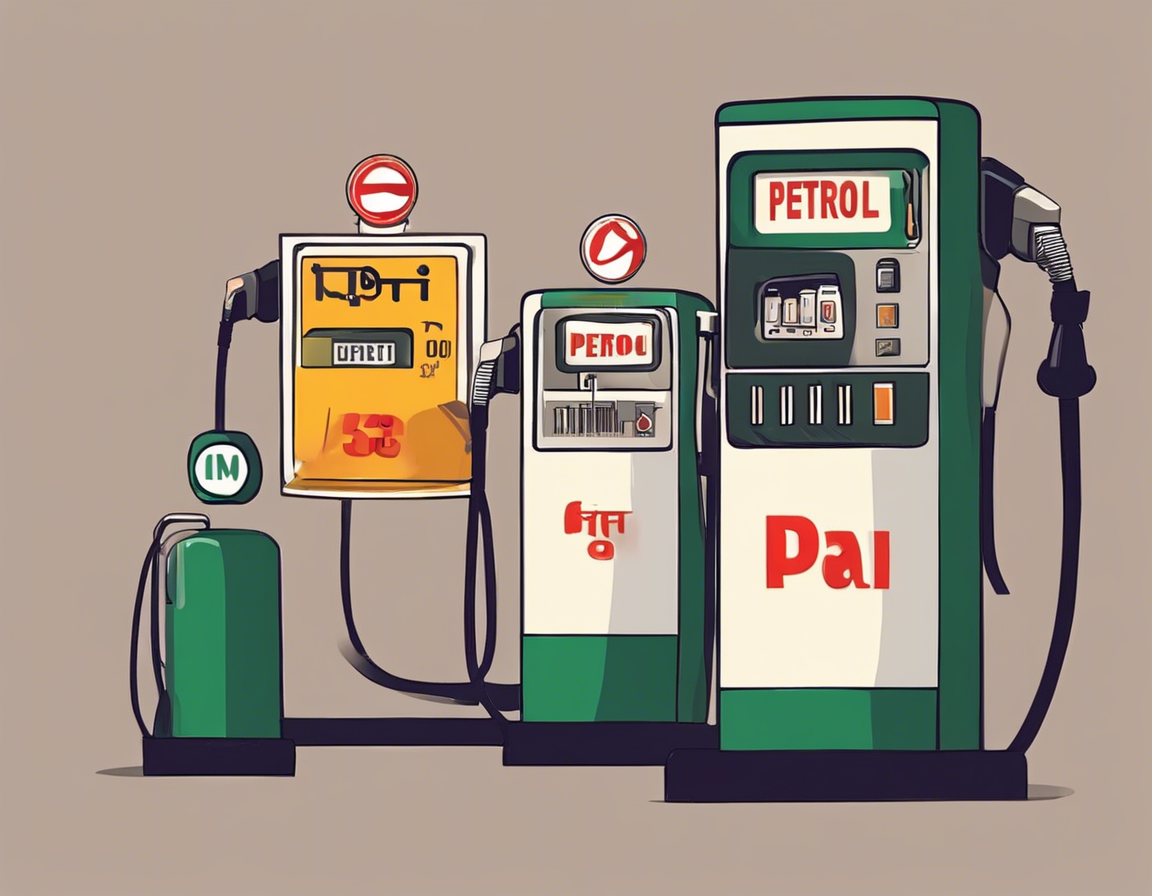Introduction
In India, petrol is known as “पेट्रोल” (pronounced as “petrol”) in Hindi. It is one of the most widely consumed fuels in the country, powering a vast number of vehicles on the road. Let’s delve deeper into the meaning of petrol in Hindi and understand its importance in the Indian context.
What is Petrol?
Petrol, also known as gasoline in some parts of the world, is a transparent, petroleum-derived liquid that is primarily used as a fuel in internal combustion engines. It is a complex mixture of hydrocarbons derived from crude oil through a process of refining. Petrol is highly flammable and is used to power automobiles, motorcycles, generators, and various other machinery.
हिंदी में पेट्रोल का अर्थ
पेट्रोल एक प्रकार का तेल है जो क्रूड तेल से उत्पन्न होता है और इसका उद्देश्य अंतर्निहित इंजनों को चालित करना है। यह वाहनों, मोटरसाइकिल, जनरेटर्स और विभिन्न अन्य मशीनों को संचालित करने के लिए उपयोग किया जाता है।
Importance of Petrol in India
Petrol plays a pivotal role in India’s transportation sector. Here are some key points highlighting the importance of petrol in the country:
1. Mobility: Petrol is the most commonly used fuel for automobiles in India. It enables mobility and connectivity, allowing people to travel for work, education, leisure, and other purposes.
2. Economic Impact: The petrol and oil industry is a significant contributor to India’s economy. The sale and consumption of petrol generate substantial revenue for the government through taxes and duties.
3. Energy Security: As a key energy source, petrol plays a crucial role in ensuring energy security in the country. Diversified energy sources, including petrol, reduce dependence on a single energy form and enhance energy security.
4. Industrial Use: Apart from transportation, petrol is also used in various industrial processes, such as power generation, manufacturing, and agriculture. It serves as a vital resource in sustaining industrial activities.
5. Employment Generation: The petrol and oil industry provides employment opportunities to a significant number of people in India, ranging from distribution and retail to refining and exploration activities.
6. Energy Efficiency: Petrol offers high energy density, making it an efficient fuel for powering vehicles and machinery. Its energy properties make it a preferred choice for certain applications where electricity or alternative fuels may not be feasible.
Frequently Asked Questions (FAQs)
1. Is petrol and gasoline the same thing?
Yes, petrol and gasoline are two terms used interchangeably to refer to the same fuel commonly used in internal combustion engines.
2. How is petrol produced from crude oil?
Petrol is produced through a process called fractional distillation, where crude oil is separated into various components based on their boiling points.
3. What is the impact of fluctuating petrol prices on the economy?
Fluctuating petrol prices can impact the economy by influencing inflation rates, transportation costs, consumer spending patterns, and overall economic stability.
4. Are there any alternatives to petrol for vehicles?
Yes, alternatives to petrol for vehicles include diesel, electric vehicles, biofuels, compressed natural gas (CNG), and hydrogen fuel cells.
5. How does the government regulate petrol prices in India?
In India, petrol prices are deregulated, meaning they fluctuate based on international crude oil prices, currency exchange rates, taxes, and other factors.
6. What are some safety precautions to consider when handling petrol?
When handling petrol, it is essential to store it in approved containers, avoid smoking or using electronic devices near it, and ensure proper ventilation to prevent potential fire hazards.
7. How does petrol consumption impact the environment?
The combustion of petrol releases carbon dioxide and other greenhouse gases, contributing to air pollution and climate change. Initiatives like fuel efficiency standards and the promotion of electric vehicles aim to reduce the environmental impact of petrol consumption.
Conclusion
Petrol holds immense significance in India as a key fuel powering various sectors of the economy. Understanding its significance, production process, impact on the economy, and environmental implications is crucial in fostering a sustainable energy future. By exploring the meaning and importance of petrol in Hindi, we gain a deeper insight into its role in shaping India’s energy landscape.


